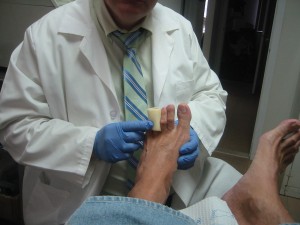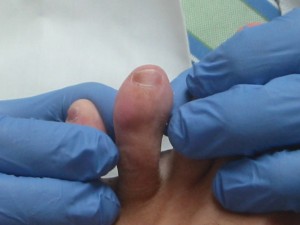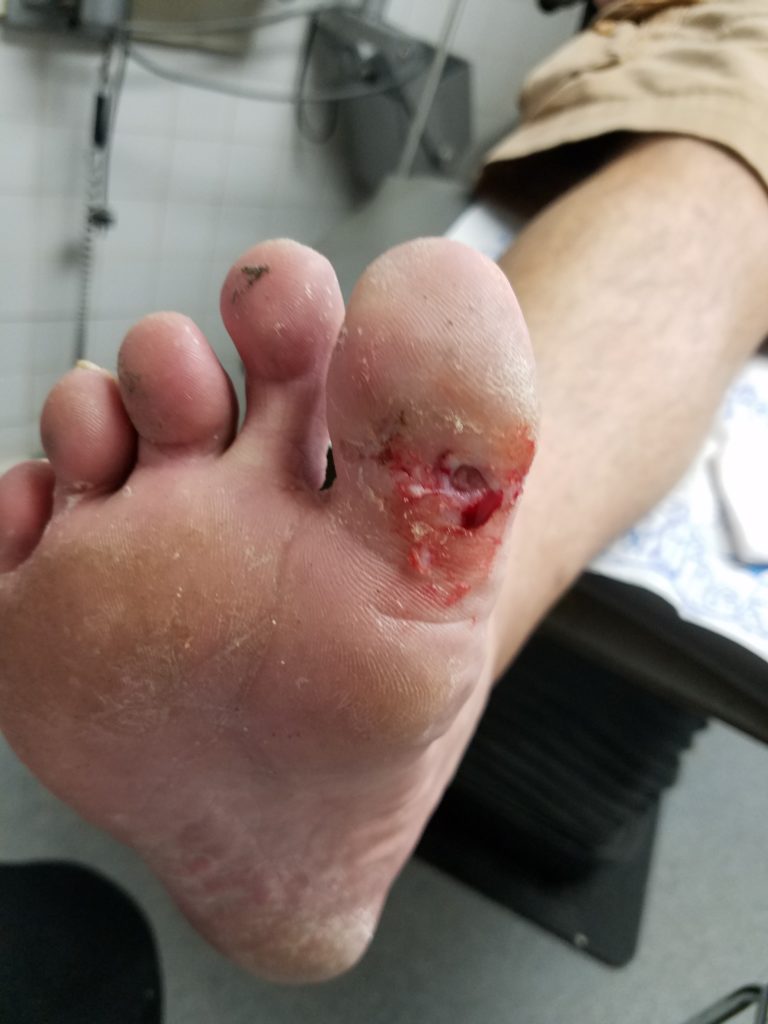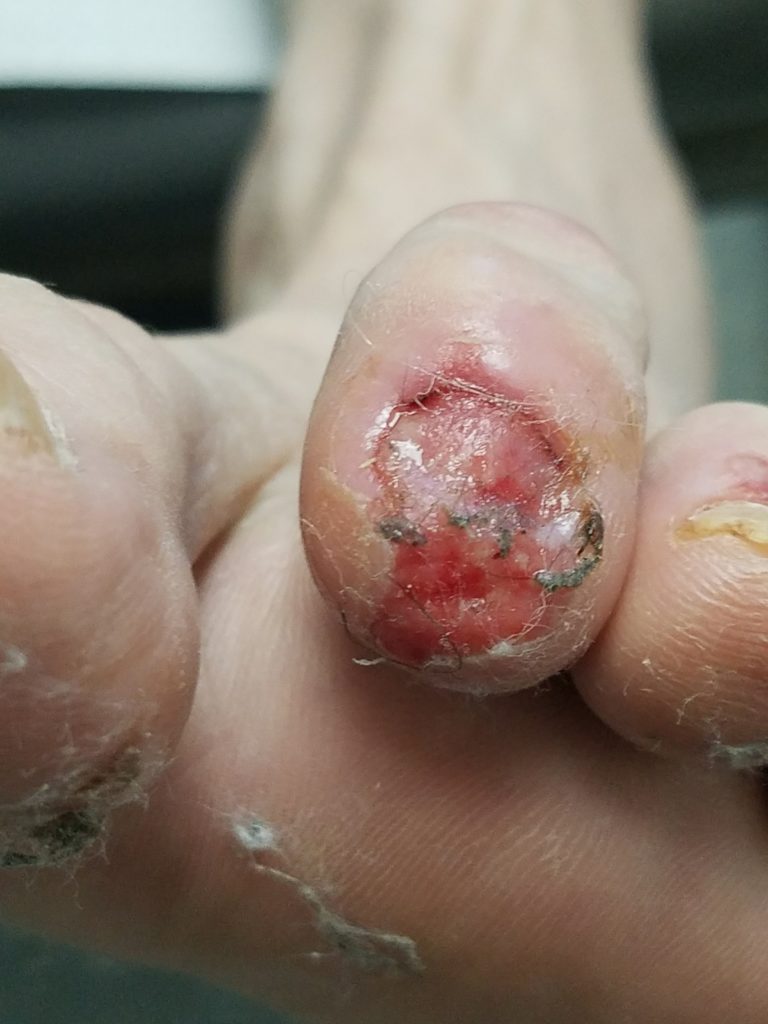Updated Diabetic Foot Care Information:
Do people with diabetes require foot care? The answer is yes. A person with diabetes needs an evaluation from a Foot Doctor at least every three to six months. The foot doctor examines the patient with diabetes and looks at 4 key areas—the circulation of the foot, the neurological condition of the foot, the musculus skeletal condition of the foot and the dermatological condition of the foot. The patient’s foot must have good blood circulation to avoid complications such as amputation. Some of the signs would be hair loss of the foot, numbness of the foot and toes, and difficultly walking. For this reason, it is important for a diabetes patient to visit a Foot Doctor – Podiatrist.
Neurological and Musculoskeletal Condition

The Foot Doctor checks the pedal pulses of the person with diabetes and looks at certain key points of the foot. The Foot Doctor looks at simple things in order to assess vascular status and then examines the neurological system of the foot. The person with diabetes that has blood flow problems usually develops dry skin. They may also have thin or shiny skin. They usually start to lose hair from their toes or legs. They also may develop thickened nails that are hard to maintain. The nails may be crumbly, misshaped or ingrown. Then the Foot Doctor examines the muscle function of all of the major muscle groups of the foot and determines if there is muscle pathology. The Foot Doctor then examines the skeletal structure of the foot for various deformities such as hammer toes, hallux valgus, bunion and bunionettes.
The person with diabetes that develops neurological problems may develop many symptoms. The first sign is usually numbness or tingling of the toes. They also may have extreme burning sensations especially when sleeping that awakens them. They may develop sores or cuts on their feet and do not recall any trauma. They must always be on the lookout for problems due to micro trauma. These skeletal deformities may become sites of irritation and possible ulcerations in the future.
Dermatological Condition
The foot doctor also must take extra care when dealing with dermatological conditions that often affect the person with diabetes. Onychomycosis or fungal nails may pose a very serious risk to the person with diabetes. The person with diabetes also is at high risk for tinea pedis and possible super infection of the foot. The patient with diabetes developing infections may also have an increased healing time. They may develop a cut or sore that takes a long time to heal. The ingrown nail on the person with diabetes may develop into cellulitis (skin infection) that spreads to the rest of their foot. Majority of people with diabetes are usually admitted to hospitals with foot infections. So, we can conclude that a Foot Care Specialist (Podiatrist) assess the foot care of a person with diabetes like no other doctor.
Decreased Nerve Sensation
If you are suffering from any of the above conditions, you will need a foot care specialist. Why not call Foot Doctor Anthony Chionis – Podiatrist at one of his locations for free consultation by phone or email him at www.doctorchionis@aol.com.



